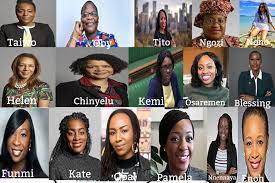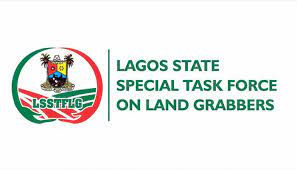
Political offices refer to positions of power and authority within the government structure, which are established to facilitate the administration of public affairs. These offices exist at different levels of government, including local, regional, national, and international.
Roles and Responsibilities
Policy Development: Political offices are instrumental in formulating policies that address societal challenges and meet the needs of the people. These offices engage in research, consultations, and analysis to develop policies that promote social, economic, and environmental well-being. They must consider diverse perspectives and strike a balance between conflicting interests.
Representation: Political offices serve as representatives of the people they are elected or appointed to serve. They are responsible for listening to the concerns and aspirations of their constituents and advocating for their interests. Through regular communication and engagement, they act as a bridge between the government and the public, fostering a democratic dialogue.
Decision-Making: Political offices bear the responsibility of making informed decisions on behalf of the government and the people. They review proposals, assess the potential impacts, and deliberate to arrive at choices that align with the broader objectives of governance. These decisions may encompass areas such as budget allocation, resource management, and public welfare.
Oversight and Accountability: Political offices hold a crucial role in ensuring transparency and accountability within the government. They monitor the activities of the executive, legislative, and judicial branches, conduct inquiries, and investigate any potential misconduct or misuse of power. This oversight function helps maintain the integrity of the government and reinforces public trust.
Nigeria, often referred to as the "Giant of Africa," is a diverse nation with a complex political landscape. As the most populous country on the continent, Nigeria holds significant influence in regional and international affairs. This influence stems from the power wielded by its political offices, which shape the nation's governance and development.
In this article, we delve into the top twelve (12) most powerful political offices in Nigeria, considering their constitutional authority, socio-political impact, and the extent of their decision-making powers.
President of Nigeria
The President of Nigeria is the highest political office in the country. Elected through a nationwide vote, the president serves as the head of state, commander-in-chief of the armed forces, and the symbol of national unity. The president holds considerable power over executive decision-making, sets the country's agenda, and represents Nigeria on the international stage.
Vice President of Nigeria
The Vice President of Nigeria serves as the second-highest political office. The vice president supports the president in the execution of executive functions and acts as the successor in case of the president's absence or incapacity. The vice president also assumes significant roles in policymaking and national development initiatives.
Senate President
The Senate President is the presiding officer of the Nigerian Senate, the upper chamber of the National Assembly. This office holds substantial power in legislative affairs, managing the proceedings and debates within the Senate. The Senate President plays a vital role in the enactment of laws, shaping national policies, and ensuring legislative oversight.
Speaker of the House of Representatives
The Speaker of the House of Representatives is the head of the lower chamber of the National Assembly. Similar to the Senate President, the Speaker presides over the proceedings in the House of Representatives. As the third most powerful political office, the Speaker influences legislation, fosters debate, and represents the House in external matters.
Governor of a State
Nigeria consists of 36 states, each led by a governor. The governor is the chief executive of the state, responsible for implementing policies, overseeing administrative functions, and ensuring the welfare of the state's residents. State governors possess significant power, controlling state budgets, appointing commissioners, and making critical decisions on local matters.
Deputy Governor
The Deputy Governor supports and assists the Governor in the day-to-day governance of the state. In the absence of the Governor, the Deputy Governor assumes the role of acting Governor. They contribute to policy formulation and implementation, handle state affairs, and engage with various stakeholders.
Ministers
Ministers are appointed by the President and are responsible for leading various ministries in the federal government. Each minister oversees a specific portfolio, such as finance, education, health, or transportation. They formulate policies, execute programs, and advise the President on matters related to their respective ministries. Ministers play a crucial role in implementing the government's agenda and delivering services to the Nigerian people.
Secretary to the Government of the Federation
The Secretary to the Government of the Federation serves as the administrative head of the federal government. They coordinate policy implementation, manage the civil service, and act as a vital link between government agencies.
National Security Adviser
Given Nigeria's security challenges, the National Security Adviser plays a vital role in shaping the nation's defense and security policies. They advise the President on matters of national security and coordinate security agencies.
Commissioners
Commissioners are appointed by the Governor's and are responsible for leading various ministries in the state government. Each Commissioner oversees a specific portfolio, such as finance, education, health, or transportation.
They formulate policies, execute programs, and advise the Governor on matters related to their respective ministries. Commissioners play a crucial role in implementing the government's agenda and delivering services to the Nigerian people.
Local Government Chairpersons
Local Government Chairpersons oversee governance at the grassroots level. They are responsible for implementing local policies, delivering essential services, and promoting development in their respective areas.
Chief of Staff
The Chief of Staff serves as the principal aide to the President or Governor, providing advice, coordinating activities, and managing the President's or Governor's office. They act as a gatekeeper, influencing access to the President/Governor and playing a significant role in the decision-making process.
Nigeria's political landscape comprises a vast array of influential offices that shape the nation's trajectory. From the Presidency to local government chairpersons, each office carries unique responsibilities and powers.
Understanding these political positions is essential for comprehending Nigeria's governance structure and the intricate interplay of power. By recognizing the top twelve (12) most powerful political offices in Nigeria, we gain insight into the individuals and institutions that drive the country's development, policymaking, and progress.























